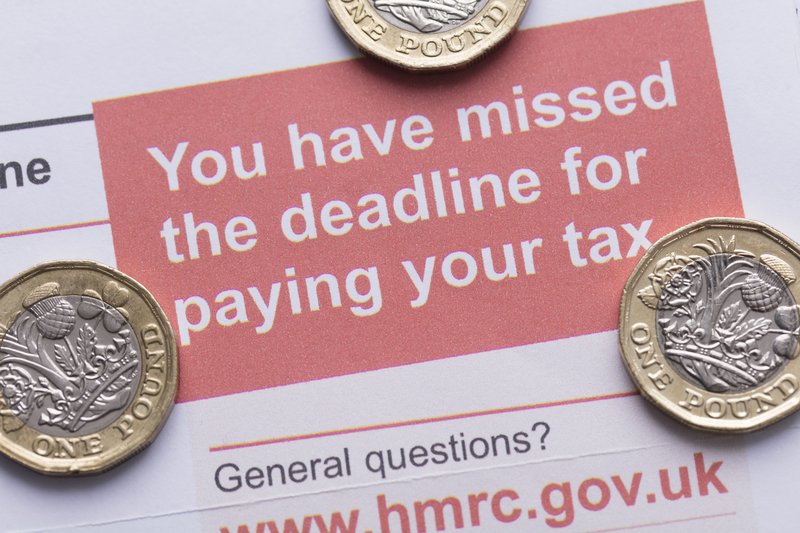If you, or your business, have used tax avoidance schemes in the past, you could soon be receiving an Accelerated Payment Notice (APN) from HMRC. So what should you do if you receive an APN?
Government measures announced last year by the Chancellor to tackle tax avoidance schemes appear to be paying off.
A recent illustration of this is HMRC’s high profile win in the Supreme Court against Rangers FC and its use of Employee Benefit Trusts (EBTs) to pay staff.
More than £47m was paid to dozens of staff members and players in tax-free loans, however HMRC successfully argued that these weren’t loans, but taxable income.
Read HMRC’s 10 things about accelerated payment notices.
HMRC Tax avoidance crackdown
Although the Supreme Court ruling in favour of HMRC is a landmark victory, its impact on the football club as it stands today is limited as the assets and the business were transferred to a new company when the old company, RFC2012, was liquidated.
Nonetheless, the ruling allows HMRC to pursue other football clubs as well as individuals and companies unrelated to sport that have used EBTs without having to take further legal action as the unanimous verdict handed down by five judges was a final and binding decision.
By strengthening its data-gathering powers and making resources available to investigate tax avoidance schemes, amongst other measures, the government is taking on individuals and companies that have used these schemes in efforts to raise more than £450m for the public coffers by 2021/22.
As a result of these investigations, it seems likely that there will be serious consequences for individuals and companies that have used these schemes as they will owe large amounts of money in tax to HMRC unexpectedly.
In this scenario, payments will be backdated to when the individual or company (member) first entered the scheme and in many cases this could amount to years of unpaid tax that must be paid.
So what should you expect if you have used tax avoidance schemes?
Accelerated Payment Notices (APNs)
You will receive an Accelerated Payment Notice (APN) if you have been involved in tax avoidance schemes that are disclosed under the Disclosure of Tax Avoidance Schemes (DOTAS) rules or counter-acted under the General Anti Abuse Rule (GAAR).
The APN will detail the amount of income tax or NICs owed and that it must be paid within 90 days.
Free Tide Business Bank Account - £50 Cashback!

Open a free business current account to qualify + enjoy 12 months free transactions. Read our Tide review.
HMRC also issues APNs to individuals and companies that have received a Follower Notice in relation to a tax avoidance scheme.
Follower Notices are issued when HMRC believes that two cases have enough in common that the “final decision” in respect of one case applies to the other.
A final decision is one that has no right of appeal, such as a ruling made by the Supreme Court, or where an appeal has been rejected or an appeal is abandoned or not made within the time limits.
Following the outcome of the Rangers’ “big tax case”, tax specialists claimed HMRC would issue Follower Notices almost immediately to recoup tens of millions of pounds in unpaid income tax.
Follower Notices ensure that in an avoidance case, disputed tax or NICs rest with the Exchequer, which forces individuals or companies participating in these schemes to pay disputed tax up-front and before the argument over the underlying liability is settled.
In this way, HMRC takes away the cash flow advantage of taking part in a tax avoidance scheme.
Making representation to HMRC
You must pay the outstanding amount shown in the notice within 90 days unless you decide to “make representation” or in other words an official complaint to HMRC.
This can be done if you feel strongly that the conditions for issuing the notice have not been met and/or the amount shown in the notice is incorrect, in which case the 90-day period can be extended.
If you choose to make representation, you will need to inform HMRC in writing that you believe the amount stated is incorrect and what you believe the correct amount of tax to be and the why. This document must reach HMRC no later than 90 days from the date that the notice was received.
Once the representation is made, HMRC will write back to you, detailing the results of its review. The response to the representation will tell you what needs to be done next.
If you make representation to HMRC before the date the payment is due, the deadline for paying may be extended, but it’s unlikely to result in a withdrawal.
Unable to pay
It’s possible for you to pay the amount owed in instalments as long as it’s all paid by the deadline.
Failure to pay an APN by the due date will lead to late payment penalties or surcharges and the possibility of enforcement action being taken by HMRC to recover the tax or NICs owed.
If you think that you’ll have problems paying the APN, it’s vital that you phone HMRC immediately. The number will be on the notice or on the earlier letter that tells you that HMRC is going to be sending an APN. This should be done as soon as possible, and HMRC will be able to discuss different payment options with you.
The APN only covers the tax or NICs relating to the avoidance scheme detailed in the APN.
The amount shown may not be the final liability agreed, which may be larger or smaller than the amount of the APN. It won’t include any interest, penalties or other tax that may be due in that year. Therefore, when the enquiry or representation is finalised, there may be additional amounts of tax to pay.
While 90 days can seem to be a long time, a professional tax adviser will need time to review the historic details of your case, including all past correspondence from HMRC. He or she may need to produce revised figures, therefore, it’s critical that you seek professional guidance immediately once you receive the notice.
Multiple APNs
APNs are appearing in increasing numbers, and you’ll receive an APN for each year that you have used the avoidance scheme and for each type of tax involved. For instance, if you have used an employment scheme for two years and this scheme offers both a tax and NICs advantage you may receive up to four APNs.
APNs are also being issued on a scheme-by-scheme basis. This means that if you are in a number of schemes, you may not get all of the APNs that HMRC plans to issue at the same time.
Settling your affairs
If you want to settle your tax affairs and have received an APN, you should contact HMRC as soon as possible. You must still pay the APN by the due date to avoid late payment penalties or surcharges.
That said, any payment received will be treated as a payment on account of the final liability and will stop the interest accruing on the underlying debt from the date it was received.
If the APN arrives at the same time as a settlement opportunity is in place, the value of the APN may not be calculated on the same terms that are being offered in the settlement opportunity as this may include interest and penalties.
Therefore, it’s likely that the APN may not be for the same amount as the figure requested to settle the matter in full with HMRC.
Insolvency
When tax bills are large and unexpected, they can cause serious problems for individuals and companies, pushing business owners to breaking point if they don’t work swiftly to improve cash flow and stay in a position to keep trading.
In some instances, directors hit with hefty tax bills will use a formal insolvency procedure to escape their liabilities.
In these scenarios, where HMRC suspects that the company can pay its tax liabilities, the taxman will scrutinise the insolvency procedure and investigate whether the assets of the business have been transferred before the company entered insolvency as well as the company’s affairs for any “hidden” assets.
If you have received an APN, the best course of action is always to arrange payment by the due date or in installments, where necessary.
In certain circumstances, where the amount shown in the notice is incorrect, the tax bill can be delayed and perhaps reduced, but it is unlikely that it will result in it being withdrawn.
This guide has been written exclusively for ByteStart by AABRS, a firm of insolvency and company rescue practitioners based in London.










